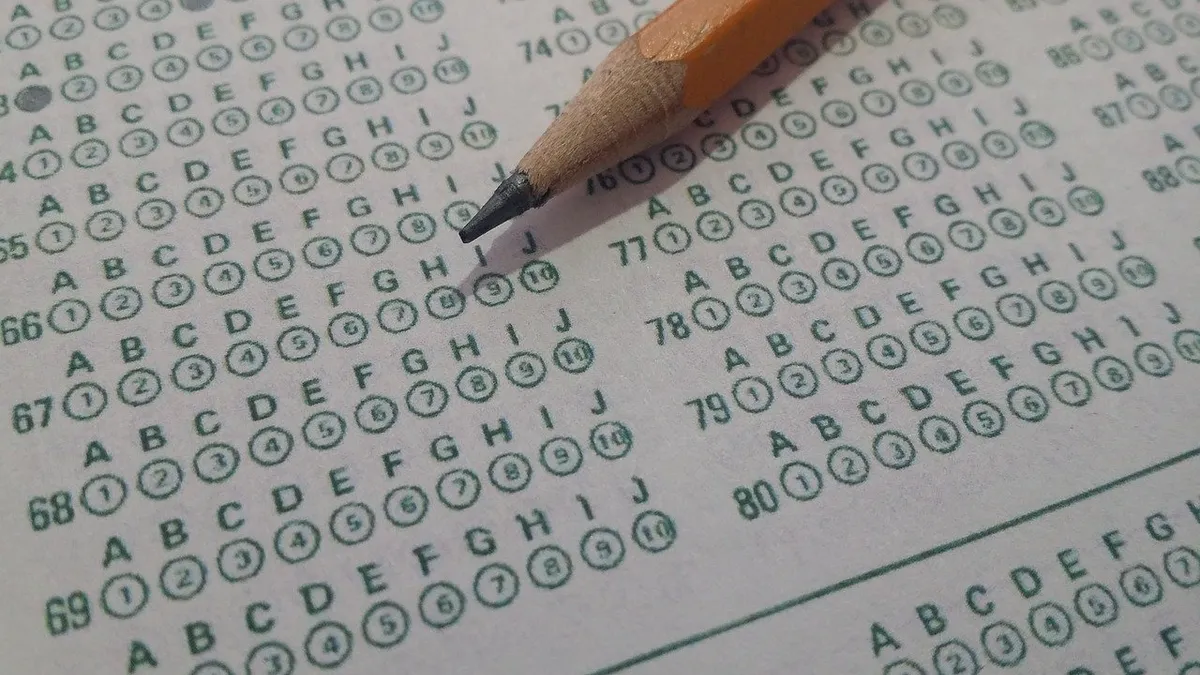Dive Brief:
-
The University of California agreed Friday to not consider SAT or ACT scores in admissions decisions through 2025 in order to settle a lawsuit over its use of the entrance exams.
-
Advocates for low-income and racial minority students in 2019 sued the UC System, arguing the exams were a biased measure of academic performance.
-
The impact of the settlement will likely reverberate through higher education and have a profound effect on admissions testing, which was already being scaled back during the health crisis.
Dive Insight:
Last May, several months after the lawsuit against UC was filed, the system's regents voted to largely eliminate the SAT and ACT as an admissions requirement.
But the system, which is one of the largest in the U.S., had planned on allowing its campuses to accept test scores for two years before moving to test-blind admissions for state residents, meaning it would not review the scores. They still would have been used for certain scholarship decisions, however.
That changed when a state court last August blocked UC from using the SAT or ACT at all in admissions or scholarship decisions for the duration of the lawsuit..
The settlement extends that court-ordered, test-blind policy for students applying for entry through spring 2025. It also forbids the system from using test scores when considering students for UC scholarships. The tests can be used for limited purposes, such as placing students in courses or advising them after they are admitted. And UC campuses can still consider scores from the SAT Subject Tests, which the College Board ended this year.
The move delivers another blow to testing behemoths ACT and the College Board, which administers the SAT. They were already under financial stress as the pandemic curtailed how many high school students could take the exams.
Many institutions temporarily converted to test-optional admissions in light of the health crisis, and at least 1,400 four-year schools have such policies for fall 2022 applicants, according to FairTest, a group that advocates for controlled use of standardized exams. A limited number of colleges have made the policies permanent. FairTest's list also encompasses colleges that were test-optional prior to the pandemic.
The organization's executive director, Bob Schaeffer, in a statement described the settlement as a "landmark" case in ending "discriminatory testing in college admissions."
Admissions professionals say that, historically, most schools to pilot test-optional admissions stick with those policies. Whether that proves true for schools that went test-optional during the pandemic is unclear. The University System of Georgia said this week it would resume its entrance exam requirements.
An ACT spokesperson said in an emailed statement that while the company supports institutional autonomy, it works to "ensure the ACT is not biased against any group of students." A spokesperson for the College Board similarly said in an email that the SAT "itself is not a racist instrument," noting, however, that "inequities exist in American education."
The UC System offered no immediate comment to Higher Ed Dive on Friday other than reiterating the terms of the settlement
This story has been updated with comments from the College Board and ACT.














